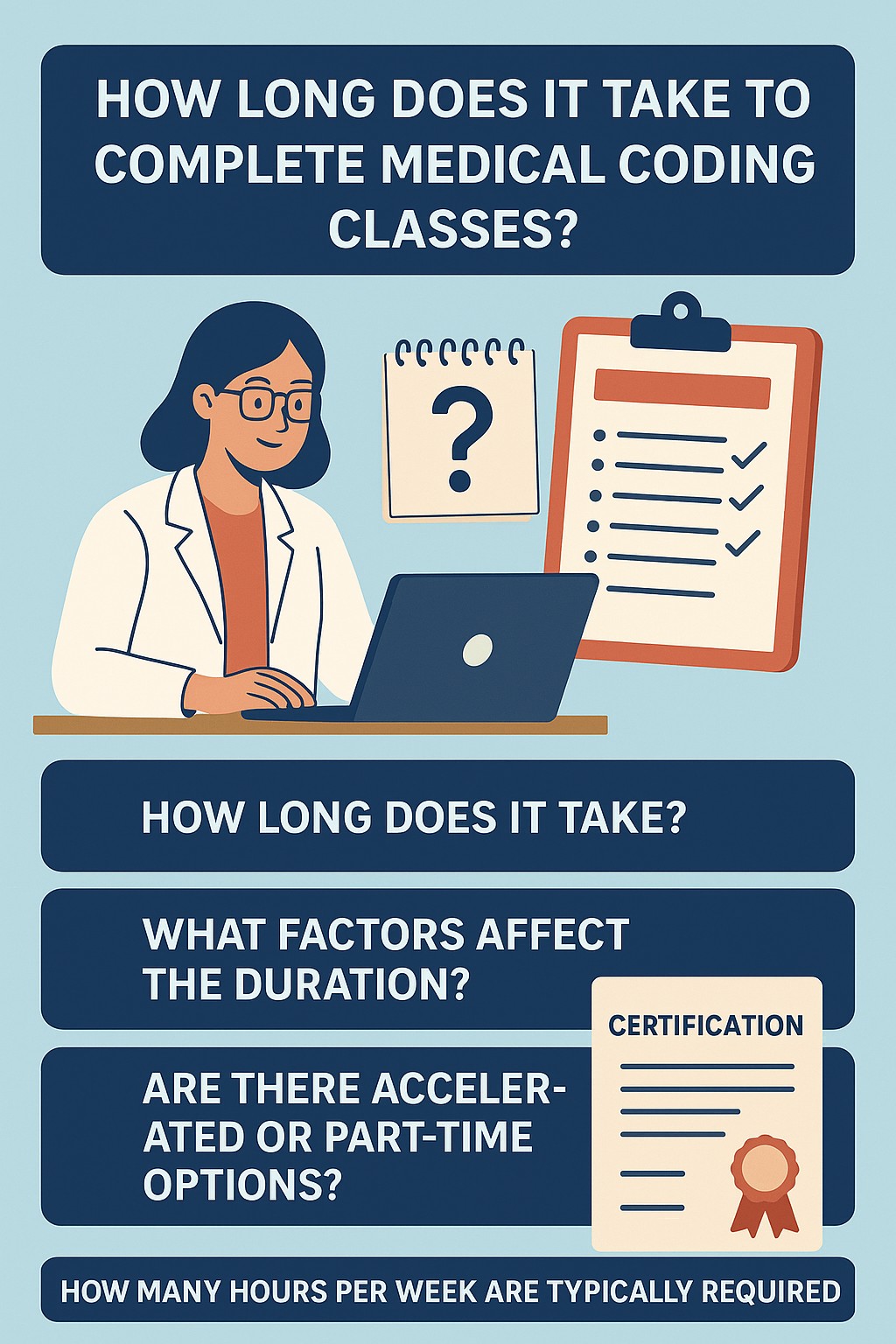Program Duration Explorer
The time it takes to complete medical coding classes typically ranges from 4 months to 2 years. Select a program type below to see a detailed breakdown.

Certificate or Diploma Program
Typical Duration
4-12 Months
Study Pace
Flexible
Focus
Core Coding Skills
This is the most common and direct path to becoming a medical coder. These programs focus intensely on the necessary skills for certification, including medical terminology, anatomy, and the major code sets (ICD-10, CPT, HCPCS). They are ideal for individuals seeking the fastest route to employment or those transitioning from another healthcare field.
Associate's Degree (AAS)
Typical Duration
18-24 Months
Study Pace
Structured
Focus
Comprehensive Education
An Associate of Applied Science degree provides a broader education, including general education courses alongside in-depth coding and health information management curriculum. This path is excellent for those new to healthcare or seeking a stronger academic foundation for future career advancement into roles like auditing or management.
Accelerated Programs
Typical Duration
Under 4 Months
Study Pace
Intensive
Focus
Exam Preparation
These fast-paced courses are designed for highly motivated individuals, often those who already have a strong background in healthcare (like nurses or medical assistants). The curriculum is condensed and demands a significant full-time commitment to prepare for a certification exam in the shortest possible time.
Key Factors Influencing Duration
Your personal timeline will depend on a few important choices and circumstances.
Program Type
As shown above, a certificate is much quicker than an associate's degree, which includes a wider range of coursework.
Enrollment Status
Studying part-time while working can double the program duration compared to being a full-time student.
Prior Experience
If you already know medical terminology and anatomy, you may progress faster through the initial course modules.
Typical Weekly Time Commitment
This chart illustrates the average hours of study required per week based on your chosen pace. This includes lectures, reading, and practice coding.
The Final Step: Certification Exams
After completing your coursework, the goal is to pass a national certification exam. These are the most recognized credentials.
CPC - Certified Professional Coder
Offered by: AAPC (American Academy of Professional Coders)
The most common certification, focusing on outpatient physician-based coding. It's a gold standard for the industry.
CCS - Certified Coding Specialist
Offered by: AHIMA (American Health Information Management Association)
Highly respected, this certification is focused on inpatient hospital coding, which is often more complex.
CCA - Certified Coding Associate
Offered by: AHIMA
An entry-level credential that demonstrates your foundational knowledge and commitment to the profession.